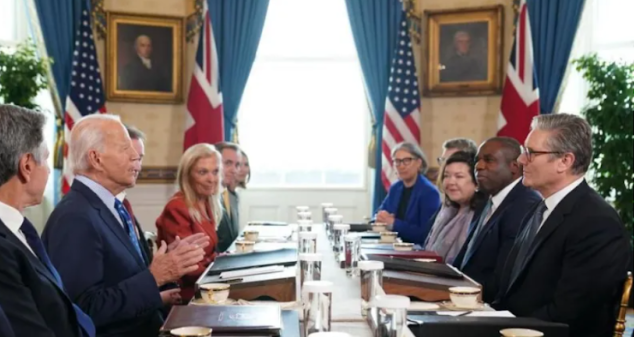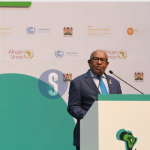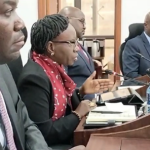UK Prime Minister Sir Keir Starmer did not indicate any decision on whether Ukraine would be allowed to use long-range missiles to strike targets inside Russia following his talks with US President Joe Biden in Washington.
When asked if he had convinced Biden to permit Ukraine to use long-range Storm Shadow missiles against Russian targets, Sir Keir stated they had a “long and productive discussion on a number of fronts, including Ukraine, as you would expect, the Middle East and the Indo-Pacific.”
The White House noted that they also shared “deep concern about Iran and North Korea’s provision of lethal weapons to Russia.”
Russian President Vladimir Putin had previously warned Western nations against allowing Ukraine to use long-range missiles on Russian territory, describing it as a form of Nato’s “direct participation” in the conflict.
Addressing reporters before his meeting with Sir Keir at the White House, Biden remarked, “I don’t think much about Vladimir Putin.”
As of now, neither the US nor the UK has granted Ukraine permission to use long-range missiles against targets within Russia, due to concerns about potential escalation. Ukrainian President Volodymyr Zelensky has repeatedly urged Kyiv’s Western allies to authorize such actions, arguing it is essential for ending the war.
Since Russia’s full-scale invasion of Ukraine began in February 2022, Ukrainian cities and front lines have faced continuous bombardment from Russia. Many of the missiles and glide bombs hitting Ukraine’s military positions, residential areas, energy facilities, and hospitals are launched from deep within Russia.
Kyiv has argued that its inability to target the bases from which these attacks are launched hampers its self-defence capabilities.
The UK previously stated that Ukraine had a “clear right” to use British-provided weapons for “self-defence,” which “does not preclude operations inside Russia,” following Kyiv’s surprise cross-border incursion last month. However, this does not include the use of long-range Storm Shadow missiles outside Ukraine’s internationally recognized borders.
The US provided long-range missiles to Ukraine earlier this year, but, like Kyiv’s other Western allies, has not authorized their use against targets deep inside Russia.
When asked if he felt intimidated by Putin’s threats of a potential war with Nato, Sir Keir Starmer responded, “The quickest way to resolve” the war in Ukraine “lies through what Putin actually does.”
Sir Keir noted that his meeting with President Biden at the White House was an opportunity to discuss broader strategic issues regarding Ukraine, rather than focusing on a specific step or tactic. They also discussed the ongoing Israel-Gaza conflict and other global matters. Sir Keir mentioned that they would have another chance to address these topics at the United Nations General Assembly next week.
In a separate briefing on Friday, ahead of the meeting, US National Security Council spokesman John Kirby stated that Washington was not planning to alter its restrictions on Ukraine’s use of US-made weapons against Russian territory.
Earlier on Friday, Moscow expelled six British diplomats, accusing them of espionage. The FSB claimed it had documents showing Britain’s involvement in causing “a strategic defeat” for Russia, which the UK Foreign Office dismissed as “completely baseless.”
UK defense analyst Justin Crump told the BBC that Putin might be testing both the new Labour government and the outgoing Biden administration. He suggested that Russia’s actions, including supplying weapons to the UK’s adversaries and engaging in various forms of subversion and cyber operations, could escalate, but warned that Russia cannot afford to confront Nato given its current struggles with Ukraine.
Additionally, the US imposed new sanctions on the Russian media channel RT, labeling it a “de facto arm of Russia’s intelligence apparatus.
” US Secretary of State Antony Blinken said RT is part of a network of Russian-backed media outlets that have tried to covertly “undermine democracy in the United States.” In response, RT editor-in-chief Margarita Simonyan, who was sanctioned by the US last week, claimed that RT staff had benefited from studying and receiving funding in the US.
Russia’s foreign ministry spokeswoman, Maria Zakharova, suggested that a “new profession” should be created in the US for specialists in sanctions against Russia.



